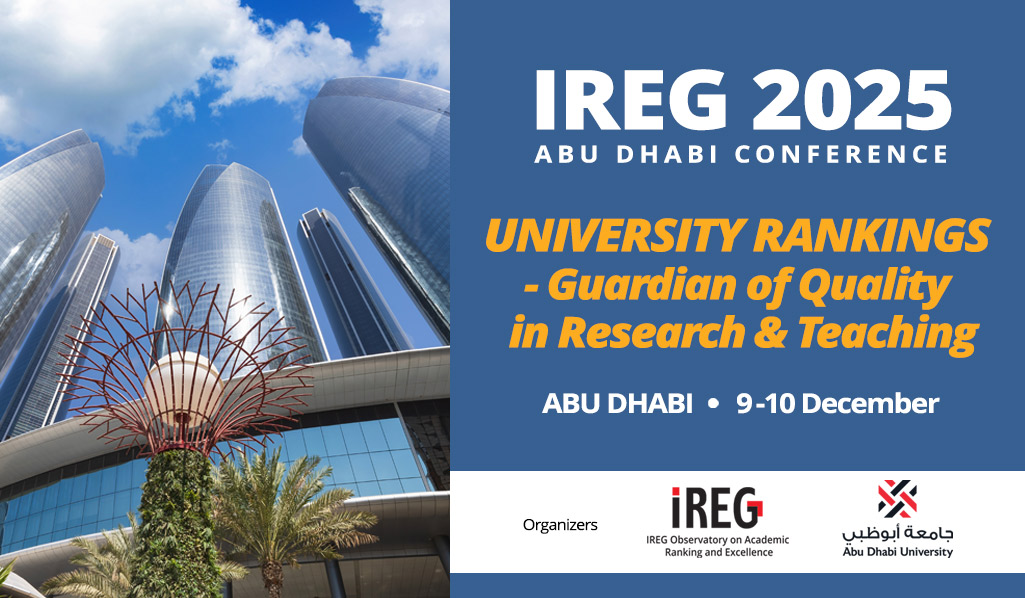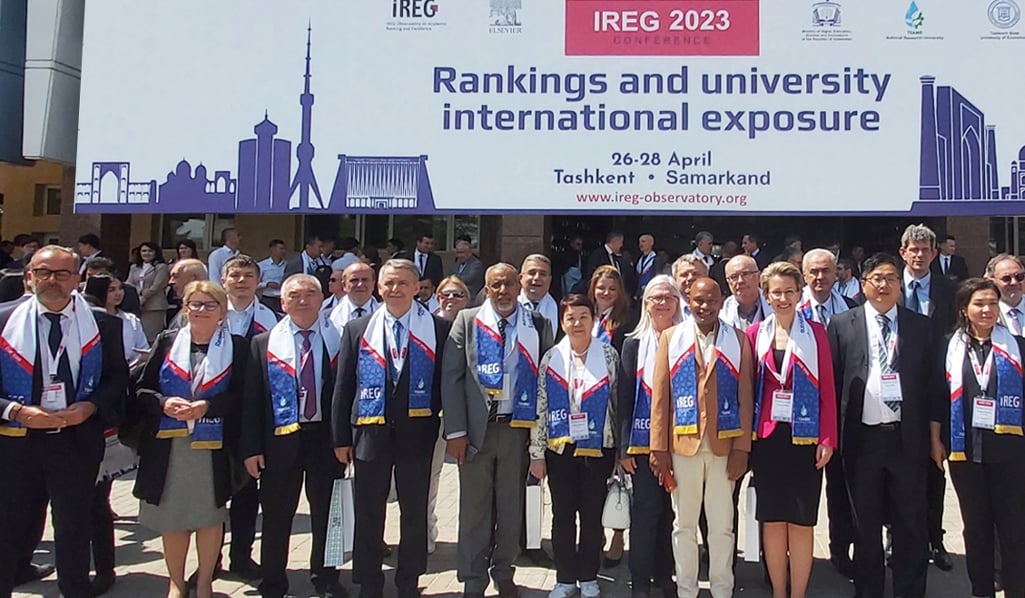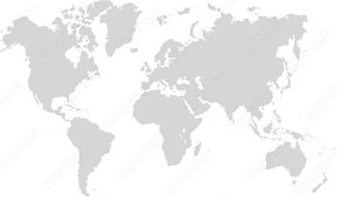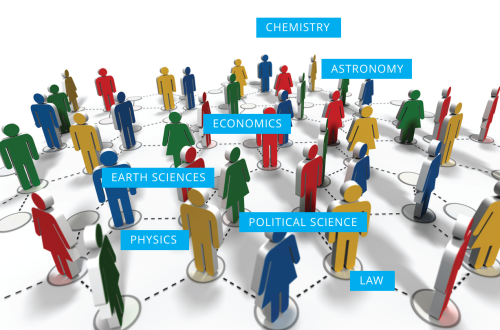IREG Ranking News
Organizers
Program Committee
- Luiz Claudio Costa, President, IREG Observatory on Academic Ranking and Excellence (Brazil)
- Alojzy Nowak, Rector, University of Warsaw (Poland)
- Waldemar Siwinski, President, Perspektywy Education Foundation (Poland)
- Birte Hornemann, University of Aalborg (Danemark)
- Mirko Degli Esposti, Bologna University (Italy)
- Habib Fardoun, King Abdualziz University (Saudi Arabia)
Organizing Committee
- Kazimierz Bilanow, Managing Director, IREG Observatory on Academic Ranking and Excellence
- Joanna Lewczuk, University of Warsaw
- Julia Lysik, IREG Observatory
- Magdalena Chrostna, Perspektywy Education Foundation
IREG 2022 Conference
Academic Rankings at the Crossroads
Warsaw, Poland 23-24 June 2022
Organizers:
IREG Observatory on Academic Ranking and Excellence
University of Warsaw
Perspektywy Education Foundation
Draft program (as of 20 June)
June 22 (Wednesday)
Venue: Novotel Warsaw Centrum, 94/98 Marszalkowska Str.
Whole day — Arrival of participants
12:00-14:00 ACCOMPANYING EVENT
Perspektywy University Ranking (Poland) 2022 announced
All partcipants of IREG 2022 are invited to the event.
15:00-17:00 MASTER CLASSES by RANKING ORGANIZATIONS
Attendees: delegates to the IREG 2022 Conference and experts from Polish universities who will come to Warsaw for the final of the Perspektywy University Ranking (Poland). They have been invited to this pre-conference event – Masterclasses by global ranking organizations.
Chair: Zygmunt Krasinski, Strategic Advisor, National Center for Research and Development (Poland)
15:00-16:00 Webometrics Ranking
- Isidro Aguillo, Editor of Webometrics, Head of Cybermetric Lab, Scimago Group, (Spain)
16:00-17:00 QS World University Rankings
- Ben Sowter, Senior Vice President, QS Quacquarelli Symonds (United Kingdom)
- Andrew MacFarlane, Senior Research Manager (Rankings) at QS Quacquarelli Symonds
17:00-18:30 IREG Executive Committee (closed meeting)
19:00 - WELCOME RECEPTION
Venue: Novotel Warsaw Centrum, Irys Hall, 94/98 Marszalkowska Str.
June 23 (Thursday)
Venue: University of Warsaw (Old Library), 26/28 Krakowskie Przedmiescie Str.
8:15-9:00 Conference registration, morning coffee
9:00-9:20 OPENING SESSION
- Luiz C. Costa, President, IREG Observatory on Academic Ranking and Excellence, President of IESB University (Brazil)
- Alojzy Nowak, Rector, University of Warsaw (Poland)
- Wojciech Murdzek, Secretary of state, Ministry of Education and Science (Poland) (tbc)
9:20-9:50 SPECIAL GUESTS
- Prof. Michael Murphy, President, European University Association (EUA): – The future university – new challenges in performance measurement
- Komiljon Karimov, First Deputy Minister, Ministry of Higher and Secondary Specialized Education (Republic of Uzbekistan)
9:50-10:10 KEYNOTE SPEECH
- Marek Kwiek, University of Poznan (Poland): – Global Science, Global Scientists: Big Data and Understanding the Academic Enterprise in the Global Edge
10:10-11:00 FIRST SESSION Science and rankings in the age of uncertainty
- Michail Zgurovsky, Rector, Igor Sikorsky University of Technology (Ukraine): – Challenges before higher education in Ukraine
- Waldemar Siwinski, Vice President of IREG Observatory (Poland): – 20 years of caring for quality of rankings and higher education-Jubilee of the IREG Observatory
Jubilee addresses:
- Michelle Asha Cooper, Deputy Assistant Secretary for Higher Education Programs and Acting Assistant Secretary for Postsecondary Education in the U.S. Department of Education (USA)
- Ying Cheng, CEO&Co-Founder at Shanghai Ranking Consultancy (China)
- Robert Morse, Chief Data Strategist for US News & World Report (USA)
11:00-11:30 Coffee break
11:30-13:00 SECOND SESSION
Geopolitics of higher education and rankings
The emergence and wide usage of global rankings were a response to the accelerating pace of the internationalisation and geo-politicalisation of higher education and research. For nations, research intensive universities became an indicator of positioning in a changing albeit unequal global world economy. Today, according to the IREG Observatory, there almost twenty global rankings along with many more regional, national and specialist rankings.
As we reach and enter the second decade of the century, we face many new challenges: hyper-globalisation creating increasing inequalities; technological changes and the 4th industrial revolution bringing huge changes to work and life; demographic change and shifts in the global talent pool; and the rise of nationalism, exceptionalism, populism and social unrest with too many people feeling left behind. And, of course, the Covid-19 pandemic and invasion of Ukraine.
The response to the pandemic shows us how the internationalisation of higher education and research can help solve global challenges. In contrast, the invasion of Ukraine highlights the fragility of those links and the securitisation of higher education and research.
The increasingly fractured character of geopolitics also highlights something more existential. “World University Rankings” assumes a single higher education sector in the global scale. This was always partly misleading, in that different national higher education traditions are partly heterogeneous, and the notions of “world university” embodied in rankings is, arguably, Euro-American centric. However, with China no longer treating international publishing as an internal “gold standard”, and some of its universities exiting from ranking, and with Russia abandoning the “World-Class” aspiration embodied in its 5/100 programme, larger questions are being asked about whether there is a “world” higher education sector.
On the 20th anniversary of IREG, this session will reflect on twenty years of global university rankings. What are the implications of recent global events on higher education and research, and on rankings? If the millennium years were dominated by the pursuit of world-classness — are rankings still relevant or meaningful today?
Chair: Ellen Hazelkorn, BH Associates (Ireland)
Speakers:
- Brendan Cantwell, Professor, Michigan State University (USA)
- Dominik Antonowicz, Professor, Nicolaus Copernicus University (Poland)
Online presence:
- Simon Marginson, Director, Centre for Global Higher Education, University of Oxford (UK)
Discussion
13:00-14:00 Lunch
14:00-15:45 THIRD SESSION
Future of higher education and rankings – global and regional perspective
Global rankings were born in an era when “innovation” was coming to the fore as an ingredient for economic growth and universities – particularly those built on the model of big American research universities – were seen as a key ingredient to innovation. There was as a result a striking consensus with respect to research being the defining mission of the “best” universities. And, as it happened, this occurred not long after large bibliometric databases became widespread and the use of bibliometric analyses more common. Public policy thus aligned with indicator availability to make global research rankings both possible and desirable.
But times have changed. As growth has faltered falters in much of the world and the consensus about the economic benefits of higher education begins to break down in some countries, the desirability of such an intense focus on research is being questioned. Even where research is not questioned, the English-language bias of many bibliometric databases is increasingly seen as inimical to the development of “domestic” science in many countries. And, while “internationalization” has been seen since 1989 as an unalloyed Good Thing, increasingly, international conflict both cold and hot as well as rising housing prices in countries receiving international students are eating away at this consensus as well.
The two key questions to be answered in this session are, therefore:
- Will key higher education stakeholders’ views about the value and mission of higher education change significantly in the next few years, and if so, in what direction?
- Are there global rankings alternatives that can respond to demands to capture new and better data about institutional missions outside the research arena which are both comparable and not too expensive to produce? And if not, what is the future for global rankings?
Chair: Alex Usher, President, Higher Education Strategy Associates (Canada)
Speakers:
- Isidro Aguillo, Editor of Webometrics, Head of Cybermetric Lab, Scimago Group (Spain)
- Gero Federkail, U-Multirank Coordinator, CHE-Centre for Educational Development (Germany)
- Ben Sowter, Senior Vice President, QS Quacquarelli Symonds
Online presence:
- Phil Baty, Chief Chief Knowledge Officer, Times Higher Education (United Kingdom)
- Lu Wang, Ranking Manager, Shanghai Ranking Consultancy (China)
15:45-16:00 Coffee break
16:00-17:00 FOURTH SESSION
Polish universities-focus on science
During session
During the session, the latest research programs and achievements of leading Polish universities will be presented – in the context of the new European development strategy.
Chair: Zygmunt Lalak, Vice-Rector for research, University of Warsaw
Invited speakers:
- Arkadiusz Wójs, Rector, Wrocław University of Science and Technology
- Piotr Pruszczyk, Vice Rector for Science and Technology Transfer, Medical University of Warsaw
- Stanislaw Kistryn, Rector’s Proxy, Jagiellonian University
- Katarzyna Szczepańska, Vice-Rector, WSB University
19:00-22:30 GALA DINNER and IREG Medal Award Ceremny-honoring Prof. Andrzej Kozminski
Venue: Agriculture Library, 66 Krakowskie Przedmiescie Str.
June 24 (Friday)
Venue: University of Warsaw (Old Library), 26/28 Krakowskie Przedmiescie Str.
9:30-11:00 FIFTH SESSION
Future on national rankings-context of date sources
Chair: Thomas Parker, Senior Associate, Institute for Higher Education Policy (USA)
Speakers:
- Richard Holmes, Editor, University Ranking Watch (United Kingdom/Malaysia): – Changes in the landscape of national and regional rankings.
- Raghu Raman, Amrita University (India): – National rankings in India – their methodologies, usefulness for future students and impact on higher education
- Gillian Golden, Project Manager — Higher Education Evidence Development at OECD (Ireland): – Independent International data-based on higher education
- Riti Fitri Sari, Greenmetrics Ranking, University of Indonesia (Indonesia): – Environmental concerns in rankings
11:00-11:30 Coffee break
11:30-11:45 PARTNER PRESENTATION
- Rachel Martin, Global Director of Sustainability at Elsevier (The Netherlands)
11:45-13:00 SIXTH SESSION
How rankings mirror changes in universities after COVID, and what role will online teaching play
Chair: Luiz Claudio Costa, President, IREG Observatory on Academic Ranking and Excellence, President of IESB University (Brazil)
Speakers:
- Grzegorz Mazurek, Rector, Kozminski University (Poland)
- Mukhambetkali Burkitbayev, Al-Farabi Kazakh National University (Kazakhstan)
- Michael Caruana, Strategic Partnerships Director, Minerva Project (USA)
13:00-13:30 CLOSING SESSION
- Alojzy Nowak, Rector, University of Warsaw
- Luiz Costa, President, IREG Observatory on Academic Ranking and Excellence, President of IESB University (Brazil)
13:30-14:30 Farwell lunch
14:30-17:00 Guided tour of Old Warsaw (optional)
14:40 IREG Observatory General Assembly 2022 (for members only)
Venue: University of Warsaw (Old Library), 26/28 Krakowskie Przedmiescie Str.
IREG 2022 Warsaw Conference
Academic Rankings at the Crossroads
The IREG 2022 Conference in Warsaw will have a special, jubilee character. A group of international ranking experts (IREG) met for the first time in Warsaw twenty years ago under the auspices of UNESCO CEPES and Kozminski University. Already then, national university rankings played an important role in several countries (Best Colleges by US News, L’Etudiant ranking in France, CHE ranking in Germany, Perspektywy ranking in Poland or McLean’s ranking in Canada). It is important to stress that the IREG meeting in Warsaw preceded the appearance of the Shanghai ranking by a year followed by QS, THE, and other global rankings. This only demonstrates how forth-sighted those experts that met then in Warsaw were.
Global rankings have strengthened as well as proliferated; they became important and influential leaving their mark on higher education. This process, however, have not happened at the expense of national rankings; they not only stood their ground but in general are as important as ever.
Over the time, thanks largely to the appearance of the ever richer and comprehensive data bases academic rankings on all levels have become more sophisticated and influential leaving its mark on higher education. Yet, despite the degree of sophistication, rankings so far failed to measure some essential element of higher education such as teaching.-
The conference in Warsaw will take stock of going on in rankings, will analyze rankings impact on higher education. Over the past 20 years rankings have grown in importance and influence, but they had and still have supporters as well as sceptics, if not adversaries. IREG conferences are open to both.
So much has happened since the last face-to-face IREG conference in Bologna in 2019. The Covid pandemic closed the world for two years, and now, we face the war in Ukraine. These events will have a lasting effect on higher education all over. The phenomenon of internationalization will never be what it used to. Mobility of students may decline or change directions; research cooperation can face new political barriers. All this will impact rankings, too.
Academic rankings are at the crossroads; which way will they go, develop?
The conference will try to answer at least some of the questions:
- How much rankings are helping, and how much they harm higher education?
- What are their strong and weak side as a tool in assessment of higher education?
- How to keep healthy balance between global, regional and national rankings, insuring that each maintains its independence?
- Should the present structure be maintained, where institutions provide data for free to private database owners who, in turn, sell these data back to them?
- Isn’t it time for international organizations such as UNESCO, OECD or the European Commission to create a non-commercial database on higher education?
The IREG conferences have traditionally become a unique and neutral international platform, where university rankings are discussed in the presence of those who do the rankings, and those who are ranked: authors of the main global rankings, university managers, and experts on higher education.
“There is at least one organization that serves as a base for communication among those concerned with rankings, the International Ranking Expert Group (IREG) Observatory on Academic Ranking and Excellence, which attracts hundreds to its conferences”. Philip G. Altbach in Research Handbook on University Rankings.
 DOCUMENTS
DOCUMENTSIREG GUIDELINES FOR STAKEHOLDERS OF ACADEMIC RANKINGS 2023
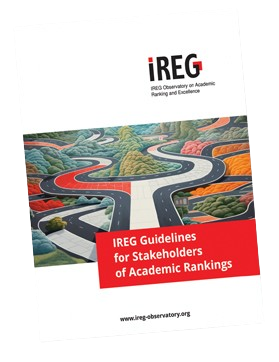
IREG INVENTORY ON NATIONAL RANKINGS

COMPETITION FOR BEST PHD THESES ON ACADEMIC RANKINGS
IREG Observatory on Academic Ranking and Excellence competition to recognize an outstanding PhD conducted in the area of academic ranking.
 INITIATIVES
INITIATIVESIREG CONFERENCES
NEWS FROM IREG MEMBERS
-
EngiRank 2024 – Ranking of Engineering Universities in Europe

Brussels, 29 October 2024. Technical University of Denmark on the top spot followed by Delft...
-
Prof. Marek Pawelczyk – Personality of European Universities

In a contest to select the most inspiring and active Polish universities operating within...
-
Polish universities are aiming high!

A short video Polish Universities – Aiming High, produced by the Perspektywy Education Foundation, tells about...
-
Bejing University of Technology

Bejing University of Technology published a Report on its activities in the period 2016 – 2020. You may...
-
Poland’s institutions top new European Ranking of Engineering Programes (EngiRank)

Warsaw University of Technology and AGH University of Science and Technology in Krakow secured the...
-
Invitation for female students and PhD candidates in IT

Join the biggest event for women in technology and IT in Europe. The online Perspektywy Women in...
